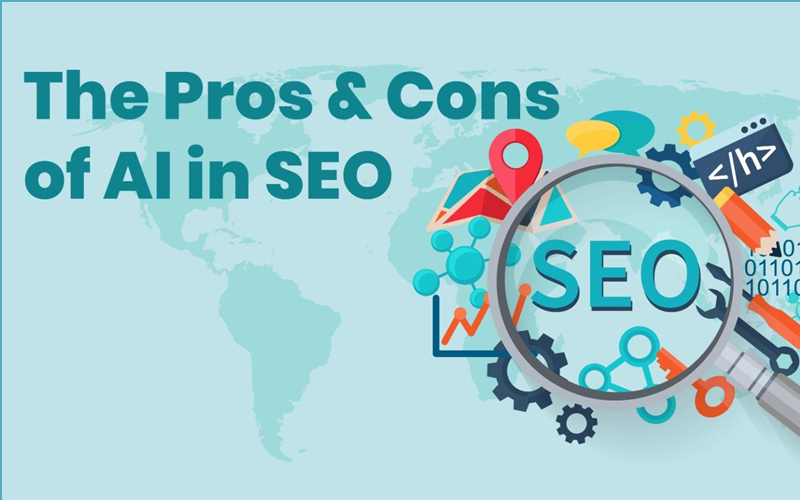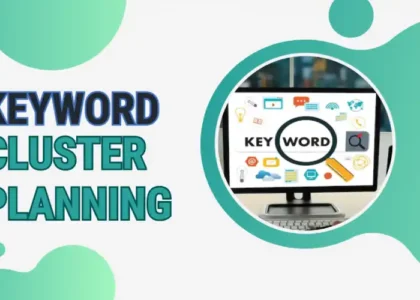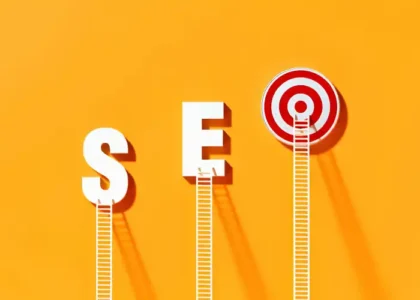The practice of SEO is rapidly changing due to AI or Artificial Intelligence. Automating tasks such as keyword research, content optimization, and link building is now possible with the use of AI-powered SEO tools. Although AI can bring benefits to SEO services, it also has its own set of drawbacks. We will examine the advantages and disadvantages of implementing AI in SEO in this article.
Pros of AI in SEO
- Improved Accuracy and Efficiency: AI-powered tools can process large amounts of data with speed and precision, resulting in improved accuracy and efficiency. SEO tasks that would take hours or even days to complete manually can now be done in a matter of minutes, meaning that.
- Personalization: Marketers can deliver personalized content to their audience by analyzing user behavior and preferences using AI-powered tools. Increasing engagement ultimately leads to higher conversions.
- Content Optimization: AI-powered tools can analyze user behavior, search patterns, and competitor analysis to optimize content. Marketers can create content that resonates with their audience, increases visibility, and ultimately drives traffic.
- Predictive Analytics: AI-powered tools can use past data to predict future trends and patterns through predictive analytics. Marketers can stand at the top of the curve, detect emerging trends, and adapt their strategies accordingly.
Cons of AI in SEO
- Lack of Human Touch: Although AI-powered tools can automate tasks and processes, they lack the personal touch that humans can provide. They may not be able to identify certain nuances and subtleties that humans can, which means. The overall effectiveness of a piece of content may be affected by an AI-powered tool’s inability to identify its tone or intent, for example.
- High Costs: Implementing and maintaining AI-powered tools can come at a high cost. Larger businesses may have a competitive advantage as small businesses and startups may not be able to afford them.
- Over Reliance on Data: The effectiveness of AI-powered tools depends heavily on the quality of the data they receive, highlighting the dangers of relying too much on data. The insights generated by the tool will also be flawed if the data is flawed. Businesses must ensure the accuracy and currency of their data.
- Lack of Transparency: AI-powered tools utilize intricate algorithms to produce recommendations and insights, which results in a lack of transparency. It can be challenging for marketers to comprehend these algorithms, which makes it difficult for them to determine how the tool arrived at a specific recommendation. Marketers may find it challenging to completely trust the insights produced by the tool due to the lack of transparency.
Conclusion
As businesses seek ways to automate tasks and processes, the popularity of AI-powered SEO tools is increasing. Although AI can improve accuracy and efficiency, personalize content, optimize content, and provide predictive analytics, it also has drawbacks such as lack of human touch, high costs, overreliance on data, and lack of transparency in SEO. Before incorporating new technology into your business strategy, it is crucial to consider its advantages and disadvantages.





